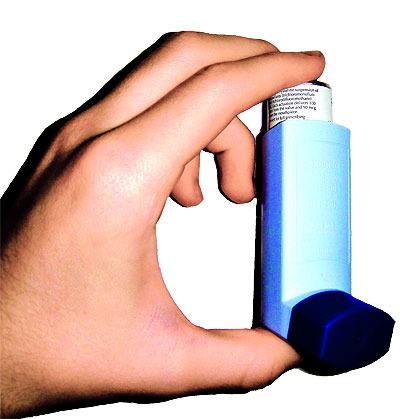Asthma is a common breathing difficulty condition. The common asthma symptoms would include wheezing, coughing, and tightness of the chest.


Asthma is a common breathing difficulty condition. The common asthma symptoms would include wheezing, coughing, and tightness of the chest. There are situations when asthma is also called reactive airway disease or bronchial asthma. Asthma is more common in children compared to adults.
Dr Dan Jackson of Rutongo Hospital of Rulindo District in Northern Province, says signs and symptoms of asthma may vary from mild to severe forms.
"It depends on the ability of the person to cope with the condition. Often times, it occurs to someone who is exposed to several external factors that can pre-dispose them to suffer from the asthma attacks,” Dr Jackson says.
It is important for asthma patients to understand these manifestations in order to find the best medical attention whenever it occurs.
However, Dr Jackson says common signs and symptoms are difficulty of breathing (dyspea), chest pain or tightness.
Inability to acquire good sleeping pattern due to breathing problems, presence of wheezing during exhalation and coughing or severe wheezing which worsens when the person suffers from flue or colds.
These symptoms are commonly manifested by persons with bronchial asthma.
Other substances commonly inhaled by the person with asthma that may trigger the manifestation of the condition include dust, fumes, and gases.
It is advisable that people with asthma exposed to these irritants should wear protective masks which will prevent them from in hauling these substances.
Allergen
The stimulus that can trigger the asthma attack is altergent.these substances can be inhaled by the person with asthma. The sources of these irritants are animals, dander, pollens and insects such as cockroaches.
Activity. [exercise-induced asthma].the humidity of the environment can also trigger to asthma attack.
A person with bronchial asthma who is exposed to extreme cold or hot weather will suffer from the occurrence of bronchial asthma.
The prevalence rate of asthma in Rwanda is estimated at 5 per cent, with Northern and Western provinces being the most affected.
How to deal with asthma without an inhaler.
Know what triggers your attacks. Smoking is a given. You must stop, and avoid passive smoking.
Allergies are another big trigger. Find what you’re allergic to and avoid it. Allergy medicines may help prevent an attack. One that’s often overlooked but effective is the over-the-counter nasal inhaler chromolyn sodium. Oral antihistamines can also help, but they can dry up the mucus-membrane lining of your lungs too much and make some people’s asthma worse. As always, check with your doctor.
Learn breathing techniques. There’s promising evidence from some small studies that proper-breathing exercises may help prevent attacks.
Maintain a healthy weight, and exercise regularly. Both have been shown to help prevent attacks.
Eat fruits and vegetables for antioxidants that can boast your immunity, and fish or fish oil for its anti-inflammatory effect.
Drink plenty of water to keep the lining of your lungs hydrated.
Cover your nose and mouth around smoke and other air irritants, and in cold weather.
Consider drinking coffee or tea. Both contain a chemical similar to the old asthma medicine theophylline. Many doctors deduce, however, that the amounts in these drinks are too small to do much good.
Store the over-the-counter oral decongestant pseudoephedrine but be sure to know its potential side effects, such as increasing your heart rate and blood pressure.
Keep epinephrine, like an Epipen, on hand. Sure it works for allergic reactions, but it works for asthma attacks without an inhaler too. Of course, get to a medical facility, but if that’s not possible, have epinephrine around for emergencies. If all else fails, it could be a lifesaver.
Please, ask your doctor before trying any of these things. Never use these as an alternative to prescription medicines. Don’t risk your life.


